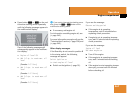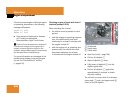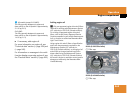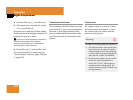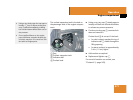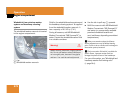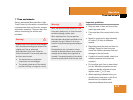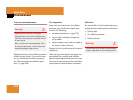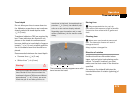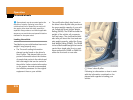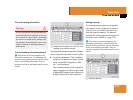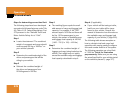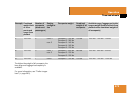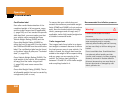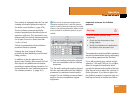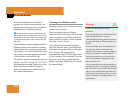
375
Operation
Tires and wheels
Tread depth
Do not allow your tires to wear down too
far. Adhesion properties on wet roads are
sharply reduced at tread depths under
1
/
8
in (3 mm).
Treadwear indicators (TWI) are required by
law. These indicators are located in six
places on the tread circumference and
become visible at a tread depth of approx-
imately
1
/
16
in (1.6 mm), at which point the
tire is considered worn and should be re-
placed.
Recommended minimum tire tread depth:
ț Summer tires
1
/
8
in (3 mm)
ț Winter tires
1
/
6
in (4 mm)
1 TWI (T
read Wear Indicator)
The treadwear indicator appears as a solid
band across the tread.
Storing tires
Cleaning tires
Direction of rotation
Unidirectional tires offer added advan-
tages, such as better hydroplaning perfor-
mance. To benefit, however, you must
make sure the tires rotate in the direction
specified.
An arrow on the sidewall indicates the
intended direction of rotation (spinning) of
the tire.
Warning! G
Although the applicable federal motor safety
laws consider a tire to be worn when the
treadwear indicators (TWI) become visible at
approximately
1
/
16
in (1.6 mm), we recom-
mend that you do not allow your tires to
wear down to that level. As tread depth ap-
proaches
1
/
8
in (3 mm), the adhesion prop-
erties on a wet road are sharply reduced.
Depending upon the weather and/or road
surface (conditions), the tire traction varies
widely.
!
Keep unmounted tires in a cool, dry
place with as little exposure to light as possible.
Protect tires from contact with oil, grease and
fuels.
!
Never use a round nozzle to power wash
tires. The intense jet of water can result in
damage to the tire.
Always replace a damaged tire.



